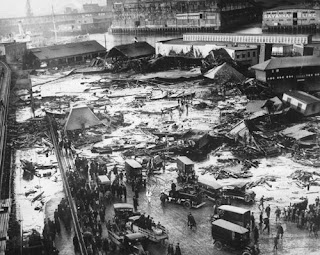
Upon learning my having joined the latest phenom which is Twitter, my male co-workers asked me point blank, But, WHY?
Why not just use emails if you want to talk to people you know? Why not use TXT? You can email to an entire group of people if that’s your reasoning for using Twitter (“one to many” instant communication)
Or, is your intention of letting strangers know what you are doing at any given minute? Waiting in line in the grocery store? Watching TRM at airport lounge?
Why? What is the rational excuse for this? Or even, the psychological needs behind this?
Excuses I use for being on Facebook, despite not having lots of “friends” (or Peeps) nor being a teenager, nor leading an active interesting life, cannot even be applied to Twitter: I can share pictures with people that I know on Facebook, only when they want to know; I am not shoving my cute kids’ pictures down anybody’s throat. And my friends may not want to know that I have been up to on a daily basis (for some, perhaps once-a-year Christmas cards have been adequate?) , but if they check my Facbook status, again, only when they want to, they can see that I have been traveling a lot more for business and that my husband is traveling around the world for his own consulting gig.
No. The same rational does not apply to Twitter. So why indeed?
I happened to read an article in Spectrum, the less-techy (and more Wired-like version of IEEE’s publication), in the current issue: “To Twitter or Not to Twitter” by Robert Lucky (I wonder whether he gets teased for his last name a lot…)
(Right off the bat, the author showed his Newbie status by not using the correct verb “Tweet”… But it’s the type of endearing mistakes that anybody over 30 in this day and age could relate to…)
He mentioned his puzzlement over a young speaker’s Tweeting about “waking up in the morning now”. Any sensible (perhaps older person) would ask, “Why would anybody want to know?” And if they want to know, can’t you call them? TXT them?
This new need experienced by the Internet-generation to be connected to the World all the time is intriguing to me, and I doubt that our children ever even stop and ponder at the wonder of this. To them this is part of existence, “I TXT, therefore I am.” The real grown-ups say this now often as a gentle tease, but there is truth in this saying. “I am Connected on the Web, therefore I am.” A life that is not documented is not worth living.
Excerpt from Mr. Lucky’s article:
“Twitter, the social-networking Web site that allows users to broadcast short text messages to a group of friends, has burst into popularity with millions of subscribers. I’m a confirmed e-mail user, but that’s so 20th century. I feel a certain pressure to get with it. So, to Twitter or not to Twitter? I view it as a question for the ages—the ages of the users, that is.
It was my generation of engineers that created the Internet, but it is largely today’s youth who are molding the social connectedness that is coming to characterize cyberspace. These are the so-called digital natives, who grew up with the Internet already a part of everyday life. They’re always online, inhabiting multiple identities, living a culture of sharing and peer collaboration. For them, multitasking is just the way it is. We older engineers built cyberspace, but our kids live in it, and for many of them the technology is transparent and almost irrelevant.
So as a digital immigrant, already an adult as the new culture was forming, I am amazed at what I see. At a recent meeting a young speaker casually mentioned that every morning he Twitters that he has just woken up. Alarm bells went off in my head. I thought about the fact that several scores of people are going to read a message that this guy has awakened. Isn’t this is an incredible waste of time for everyone involved? But a more unpleasant thought also formed in the back of my head—the worry that no one would care that I myself had just arisen. There must be some social consequence that I’m missing. An older acquaintance told me that he had been using Twitter and that after a week he had begun to feel a sense of connectedness.”
Mr. Lucky referenced two cartoons published by The New Yorker 12 years apart to illustrate how things have changed through the years, and how things have not really: these priceless (and thought-provoking) cartoons can be found here:
“On the Internet, nobody knows you’re a dog.” (A dog, sitting at a computer terminal, talking to another dog.) Published in The New Yorker 5 July 1993 by Peter Steiner.







